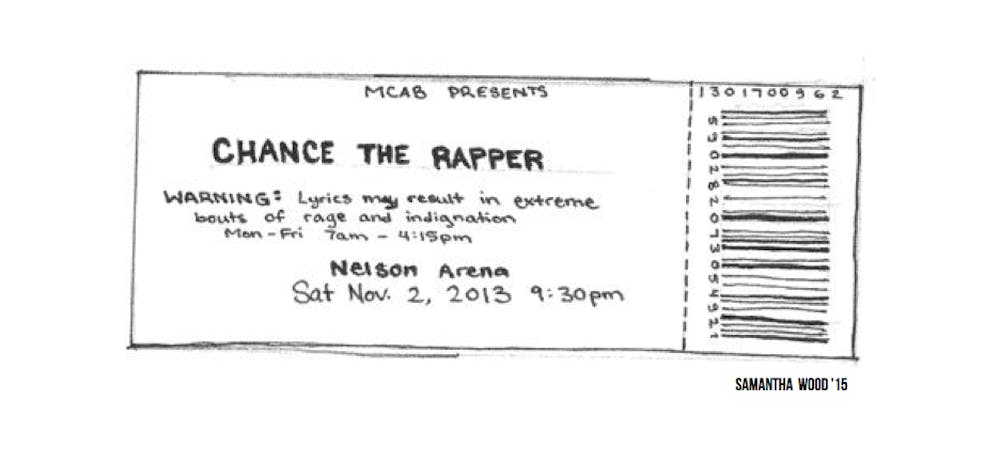Like many other students on this campus, I went to the Chance the Rapper over the weekend. I danced and yelled and had a great time. I even listened to him perform the controversial lyric in his performance of “Favorite Song.” And so, now that Chance has come and gone, let us assess: what has changed? Are we now a distinctly more homophobic and misogynistic community because we listened to his performance? Is the world doomed to act in accordance with whatever hip-hop artists write in their songs?
While it is very true that we would not allow a professor that advocates violence against women to teach on our campus, why is it also true that there is a need to censor an artist that comes to our campus to perform? Unlike the classroom, a concert setting does not necessarily reflect the views of the Middlebury community, and in my opinion, the more conflicting the artist is with our community ideals, the more we can potentially learn from the experience. Being able to not only understand but also to make a judgment about other people’s opinions is a crucial skill that we do not see enough of in this world.
The opinion that rappers should be held more accountable for their lyrics is, conceptually, very fine and dandy. But, realistically, the blame for hip-hop’s socially irresponsible lyrics may not only rest on the shoulders of the artists. Hip-hop music is not the sole influence of our culture, and our culture is not the only thing that drives rap lyrics. It is a complicated stream of influences. When a song uses a homophobic or racial slur, we cannot always simply chalk it up to “oh, this rapper is ignorant.” The issue of rights for same-sex partnerships, however, is one that is quite prevalent in our society, so it makes sense that we are hypersensitive to any reference to it.
But why, for example, do we make such a fuss over a single word in one of Chance’s songs when in another one of his songs he raps “Killin in the hood like Trayvon?” To the average listener it may seem like Chance is trivializing the random murder of an innocent teenage boy. How come this lyric was not the angle of attack in the anti-Chance assault? This selective activism against social injustice does not comply with the good-hearted motives of Middlebury’s accepting community. Usually, music does not matter, until it does, and when it does, it somehow becomes the most important thing in the world. We should pay attention to what our music is saying because it may be what everyone else is thinking. The next time we have the privilege of having any artist come to our campus, we should hold our tongues and understand what he or she is saying before we condemn him or her. Learning to understand the cultural differences between our bubble in Addison County and any place outside this bubble is crucial in adjusting to “the real world” once we all leave here.
LUCAS AVIDAN ’15 is from Harrison, N.Y.




